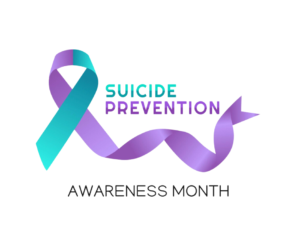
In a national study conducted before the pandemic, 1 in 15 US physicians had thoughts of taking their own life. That number has unfortunately increased due to work overload and burn out, and it also does not include statistics on all medical professionals. We mentioned earlier this month that September is National Suicide Prevention Month, proving to be a good time to provide useful tips if you’re feeling burn out and are concerned about your mental health.
- Stay in touch and express your feelings. Do not withdraw from life and isolate yourself. Consider different ways of expressing what you’re experiencing, such as talking to a friend or family member or writing in a journal. The important thing to remember is not to contain all your emotions and hope that they will disappear; release them in a healthy way.
- Be more active. While mentally you may feel exhausted, studies have shown that physically getting up and getting some exercise may reduce the symptoms of depression, as well as future depressive episodes.
- A healthy diet. There is no magic diet that will treat depressive thoughts. While it’s easy to get stuck in a pattern of “grab and go” with meals, or relaxing with an alcoholic drink, it’s important to keep up with a healthy diet and know that everything you are putting in your body will affect your mood. Make wise choices when it comes to your eating and drinking habits.
- Have a routine. It is easier said than done in the medical profession, if depressive symptoms disrupt your daily routine, a gentle schedule may help you feel more in control. Focus on creating a loose, but structured routine to help you keep your daily pace. This includes sleeping. Attempt to go to sleep at the same time every night to feel well rested.
- Practice Gratitude. Depressive thoughts easily can wash away everything good you have going for you. It is important to take a moment and reflect on all the good things in life. Focus on something that you love or a new activity that you enjoy, take a moment to be thankful for it. The more positive things that you can focus on the more it will push out the bad that will continue to try to creep in.
While these are basic tips, there is more information and resources to be found on the Code Green Campaign website. Code Green Campaign is a great source for a first responder who is struggling with mental health issues. This includes all first responders; Firefighters, EMTs, paramedics, dispatchers, police, corrections officers, air medical personnel, and search & rescue team members. They not only provide education on the signs and symptoms of the mental health issues that first responders are experiencing, but they are also providing ways to reduce the stigma behind talking about mental health issues.
